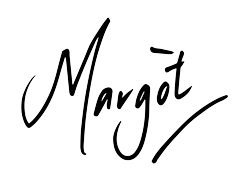Current employment trends have seen us bear witness to ever increasing job competition at all levels; rising unemployment figures; increased redundancies and company downsizing; low job security; and new technologies continuing to disrupt the way in which we do business.
‘Getting ahead’ on the career ladder and successfully navigating the volatility and ever-changing nature of the employment landscape is a challenge we all face. I recently heard a comment that obtaining career success requires individuals to consider themselves as entrepreneurs and their careers as a start up business. Reid Hoffman (Linked in Co-Founder) and Ben Casnocha wrote a book on this very topic, stating that the skills that start-ups require are the very skills that professionals need in order to advance their careers: nimbleness, personal investment, strong networks and intelligent risk taking.
Building these skills into your career requires a high degree of self-awareness, confidence and foresight: it requires a well-executed plan. Without one it is all too easy to become caught in the whirlpool of uncertainty, change and fierce competition.
For many of us who have spent time in leading businesses and teams, we are familiar with the process and benefits of writing practical, action oriented business plans. They force us to think realistically, objectively and unemotionally about our business. They allow us to review our goals, successes and challenges in a timely manner and make necessary changes on route. They allow us to make informed decisions about investment; identify areas where additional learning and support is required; and identify both risks and emerging opportunities.
So why are so many of us not creating plans for our careers? For many it seems to be a case of the ‘rabbit in headlights’ scenario – not knowing what we want, not knowing how to effectively develop or implement a personal plan, and not having the time. If you are to accelerate your career or stand out in the market place, there is no denying that you need a robust and adaptable plan. Creating one that offers you clear direction, practical building blocks, and builds resilience, is critical if you are to achieve personal fulfillment and career success.
Consider how you can apply these following seven strategies to help you future proof and accelerate your career today:
Be ready for change: It is estimated that over 65% of today’s children are currently being educated for jobs that don’t yet exist (Cathy Davidson – Futures specialist). The ability to develop and adapt your personal career plans as you change, as our social environments change, and industries and business protocols change is critical if you are to maintain relevance and protect your career.
Invest in your strengths: To build your competitive advantage you need to not only know your strengths but how best to build upon them, where to apply them and where they are most valued.
Never Stop Learning: Never assume that you know all there is to know about managing your career – even transitioning out of a full time career takes planning and foresight. Begin by investing time to acquire the right intelligence and know-how that will accelerate your career. Investigate key industry trends and challenges; recent business success stories; know who the key influencers and thought leaders are. Be proactive in educating yourself in what is required from both an industry and individual perspective.
Invest in a career coach or mentor: Building and maintaining career momentum can be difficult. It is all too easy to get caught up in the business of doing and for many the career management process becomes a stop start process. A career coach can provide clarity of direction, consistency of focus and provide new tools and perspectives to elevate performance and productivity.
Strengthen your professional network: Invest in the right relationships and dedicate time and energy to them. Identify your key influencers and thought leaders, and identify a meaningful pathway of how to approach and engage with them. Build a networking plan that fosters authentic professional relationships where you can also offer valuable contributions.
Take proactive risks: Low risk is often associated with stability. However it has been suggested that in the long term, continually opting for the low risk options leads to increased vulnerability as it reduces our resilience to deal with sudden and high level change. ‘Playing it safe’ with your career can in fact create higher risk through an inability to cope with the volatility and rate of change which is all to common in the market place today.
Create balance: When we create balance we create strength. Healthy relationships and interests outside of work help not bring a strong sense of calm, being grounded, resilience and motivation. You can contribute to the success of your career by building balance and dedicating time and attention to your family and personal life.
If we are to build rich and rewarding careers that see us thriving and not just merely surviving we need a plan to get ahead. Without it we will simply be in the same place this time next year wondering why nothing has changed.
In the words of Mark Twain… the secret to getting ahead is getting started. The secret to getting started is knowing your career purpose, breaking down your larger goals into manageable, realistic tasks and simply starting on the first one.
As always I would love to hear your thoughts.


